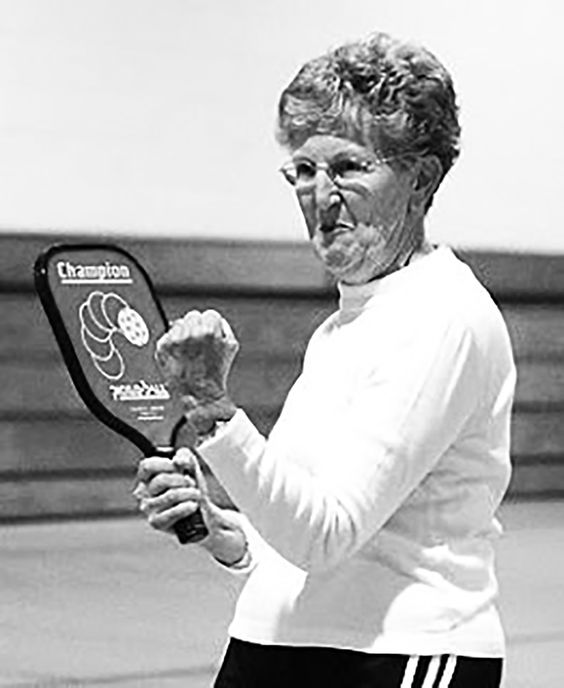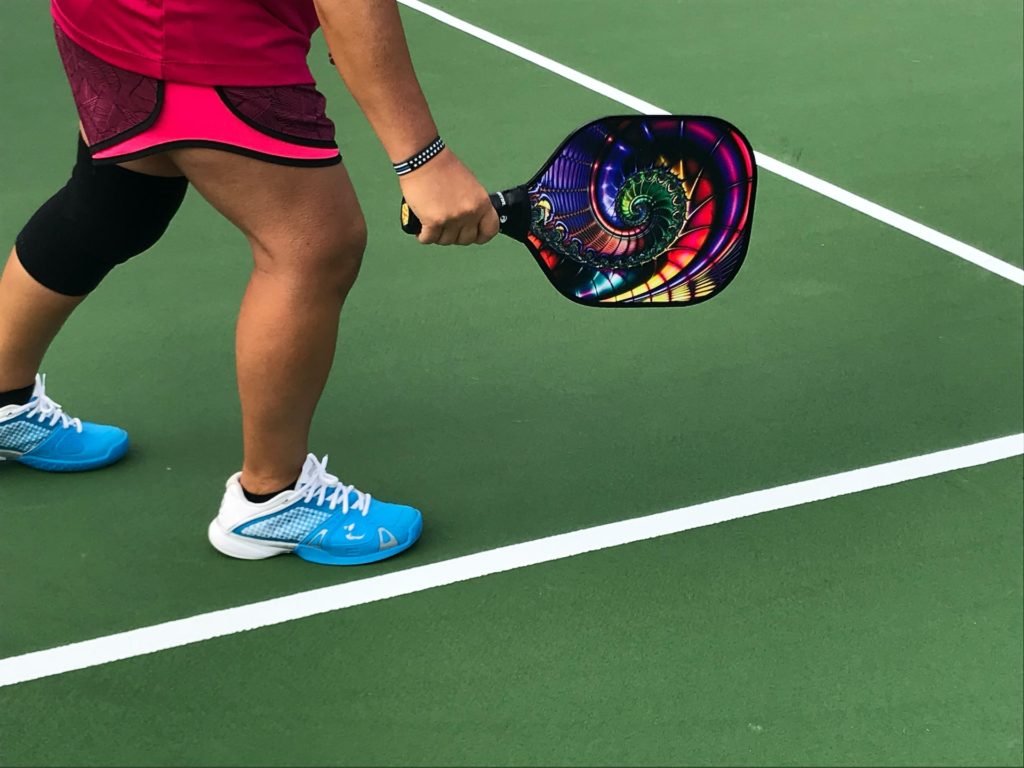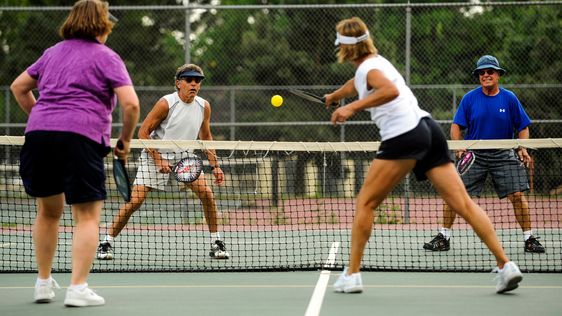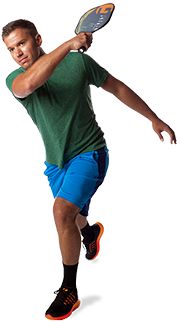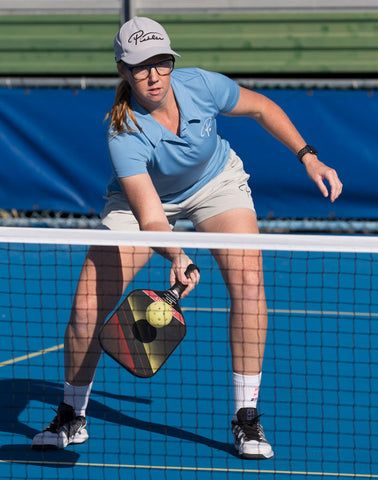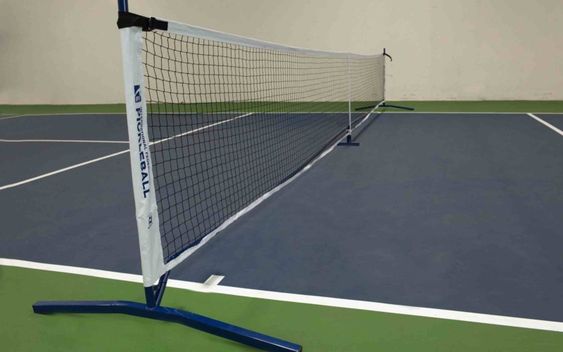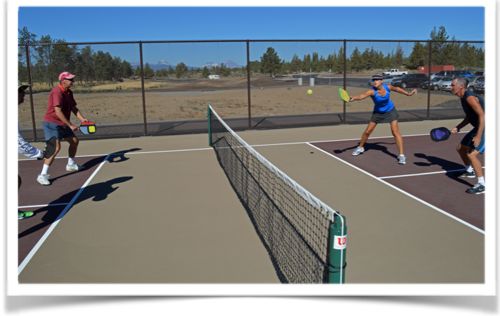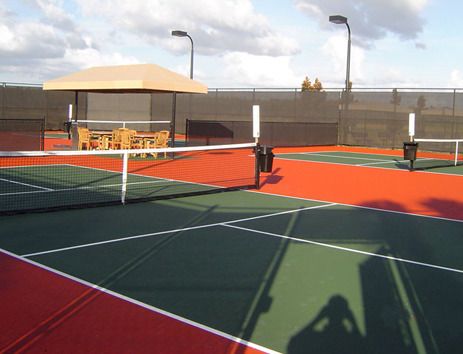Pickleball is a popular sport that combines elements of tennis, badminton, and table tennis. It is played on a smaller court with a lower net and a perforated plastic ball. To truly master the game, it’s important to understand the terminology used in pickleball. Here are some key terms and definitions you need to know.
Pickleball Terms and Definitions
Ace
An ace is a serve that is not touched by the opposing team and results in a point.
Approach Shot
A shot that is hit while moving forward with the intention of setting you up for the next shot at the net.
ATP
Around the post shot.
Alley
The area on either side of the court, between the sidelines and the doubles court
Backspin
Spin that is put on the ball by hitting it from high to low. Backspin is produced by cutting the ball. Backspin makes the ball bounce and instead of bouncing forward, the ball bounces and goes in the opposite direction. Good drop shots have backspin.
Back Swing
The paddles first position in your swing.
Champion Shot
A ball that bounces twice in the kitchen.
Carry
Hitting the ball with an illegal motion, resulting in a fault. Instead of the ball bouncing off the paddle, the ball is carried or thrown with the paddle.
Court
The playing surface on which pickleball is played, which is typically 20×44 feet for doubles and 20×34 feet for singles.
Cross Court
The part of the court that is diagonal from you.
Composite Paddle
A paddle made of multiple types of material
Dead Ball
Ball is dead once the point has ended.
Doubles
Pickleball played with a partner. 2 players on each side of the net. 2 teams of 2.
Dink
A dink is a soft shot that is hit with a light touch and is used to drop the ball into the non-volley zone forcing the opponent forward and close to the net.
Down the Line
The part of the court that is played directly straight ahead. Backhand down the line and forehand down the line shots are both played over the highest part of the net.
Double Fault
This is a tennis rule. In pickleball there is only one serve attempt allowed.
Double Bounce Rule
If the ball bounces more than once, the point is over.
Drive A drive is a hard, powerful shot that is hit to the opponent’s back court. The deeper in the court the better. It is used as an aggressive shot to try and force the opponent into making an error.
Forehand
A forehand is the stroke usually made with the dominant hand and swung across the body.
Follow Through
The last and ending position of your swing. Forehand follow through usually ends over the shoulder.
Fault
A fault occurs when a player fails to properly execute a serve or return.
Foot Fault
A foot fault occurs when a server steps on or over the baseline while serving. After the ball is hit, then the server can step on or over the baseline.
Forced Error A forced error in pickleball or tennis is when an error is made when a ball is deemed unreturnable.
Game Point
The point that would win the game if won.
Groundstroke
A shot hit after the ball has bounced. Forehands and backhands are groundstrokes.
Let
A let is a replay of a point due to a disturbance or other unforeseen event. A let used to be when a serve hits the net and still lands in the service area. The point would be replayed. Rule change now means that when a serve hits the net and still lands in the proper area, the ball is live and in play. A let can still be called if an emergency situation occurs and the point needs to be replayed.
Line-Calls
If the ball lands on any part of the line, it is IN.
Lob
A lob is a shot that plays the ball high and deep pushing the player from the net back to the baseline.
Non-Volley Zone
The non-volley zone is the area within 7 feet of the net on each side of the net. Players are not allowed to hit volleys from this area.
Overhead
A shot hit over your head. Same as a smash shot.
Paddle Face
The part of the paddle that makes contact with the ball.
Poach
In doubles, when your partner jumps to your side of the net and takes the volley.
Pickled
You got pickled when you lose a game without scoring a point. Losing 11-0 is getting pickled.
Paddle
The paddle is the racket used in pickleball. It is typically made of composite or wood materials and is smaller than a tennis racket.
Passing shot
A passing shot usually refers to a groundstroke hit at a player at the net that is intended to pass or go through the net player.
Rally
A rally is continuous shots back and forth by both players. A rally begins after a serve is returned and ends when the point is over. A rally is not a volley.
Slice
A slice is a type of spin shot that when bounces, slides on the court to the left or the right.
Score
The score is the number of points a team or player has in a match.
Serve
The serve is the initial shot of a rally and is used to start play.
Singles
A game played by one player on each team. 1 vs. 1.
Service Box
The service box is the area in which a server must serve from. It is typically a rectangular area behind the baseline.
Service Court
The service court is the area on the left or the right of the centerline. All lines are part of the service court besides the kitchen.
The service court is the half of the court in which a player is serving.
Side-Out
A side-out occurs when a team or player loses the serve and the opposing team or player begins serving.
Smash
A smash is a powerful overhead shot that is used to end a rally. A smash is an offensive shot used to dictate play.
Top Spin
This is a spin shot that is created by hitting over the ball. This makes the ball jump after the bounce.
Third Shot Drop
A third shot drop is a soft shot that is hit after the first two shots of a rally and is used to drop the ball into the non-volley zone.
Unforced Error
A mistake made when not under pressure or forced to make the mistake.
Volley
A volley is a shot that is hit before the ball bounces. A volley can be a forehand, backhand or overhead shot and is anyshot taken out of the air.
Winner A winner is a shot that wins the point that the opponent does not get a paddle on. Zero Volley Line The line that separates the kitchen from the non-volley zone.
REMEMBER: A let and a net are not the same thing. A volley and a rally are not even close to being the same thing. An ace is only from serving and a winner is only when the ball is untouched. The line is in and a drop shot is basically a dink from anywhere on the court.
By understanding these key terms and definitions, you’ll be well on your way to mastering the game of pickleball. Whether you’re a beginner or an experienced player, understanding the lingo of the sport will help you play better and communicate more effectively with your teammates.

